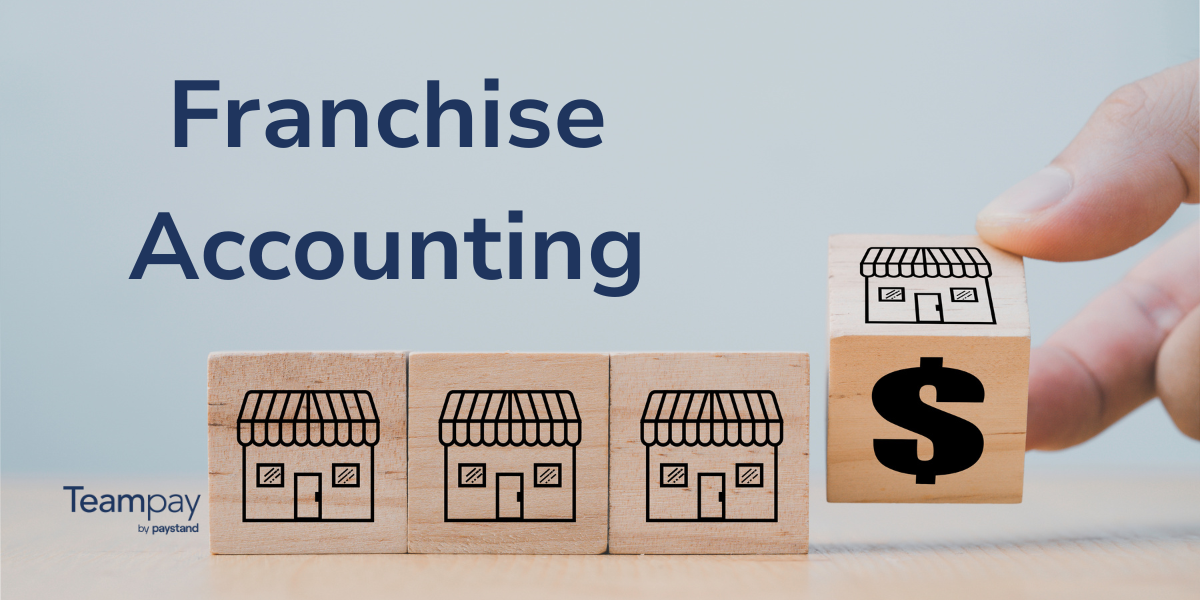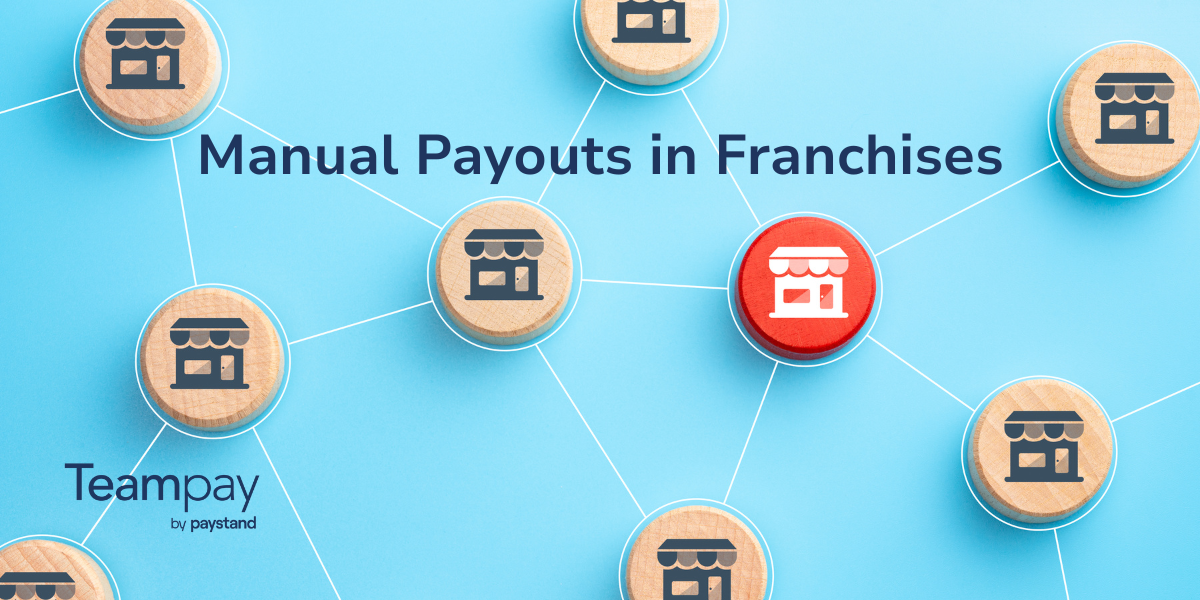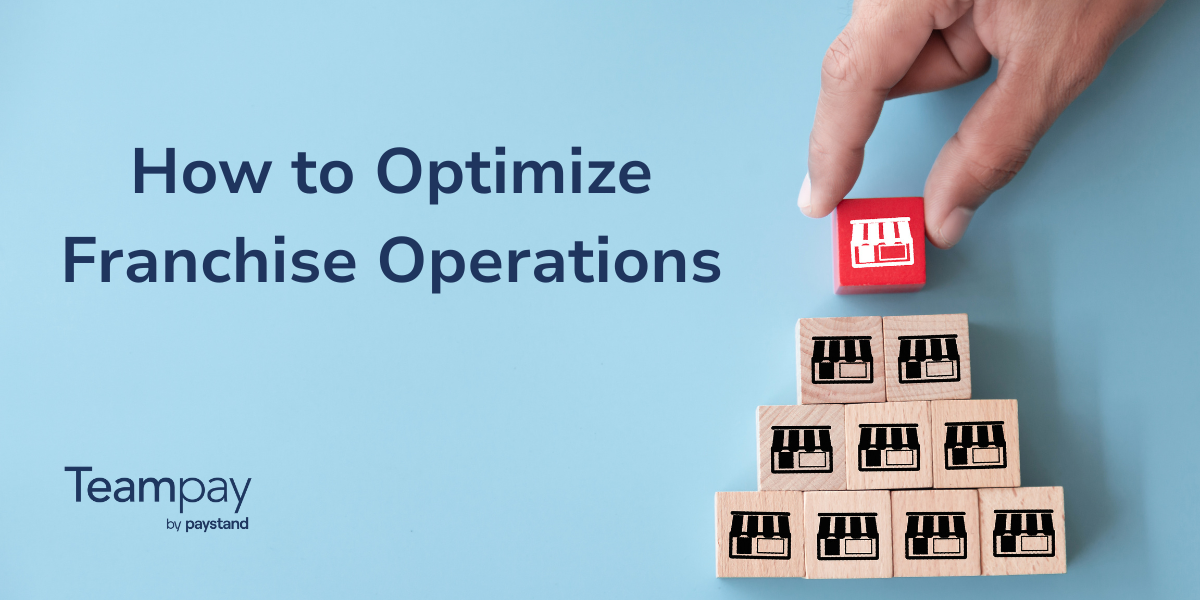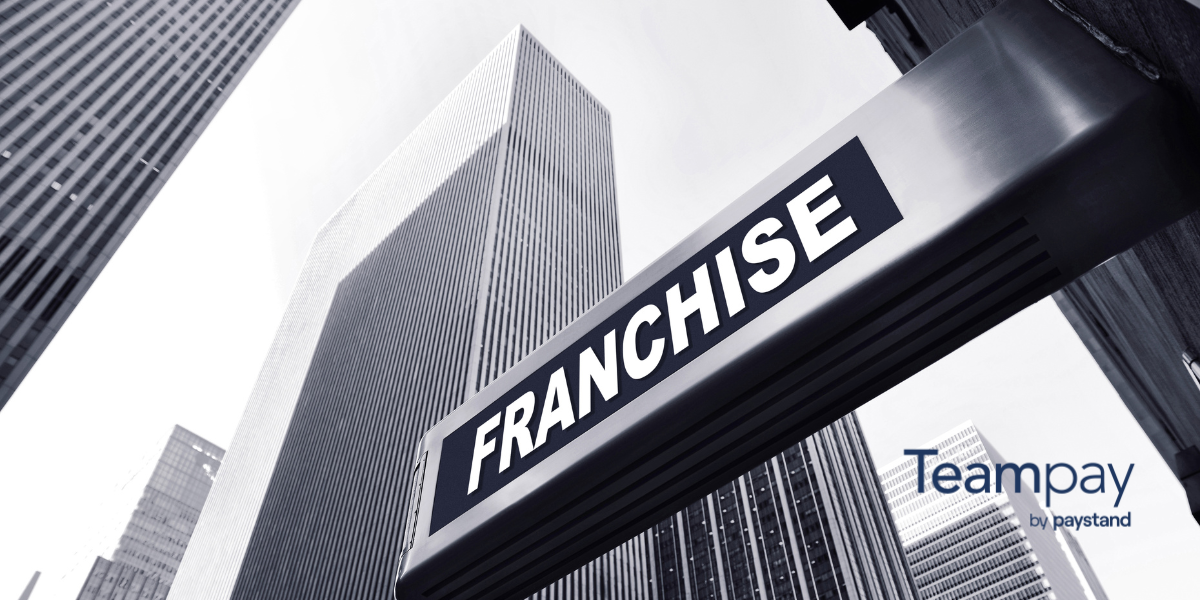Table of Contents
When it comes to accounting, franchises have a specific model that takes some getting used to. The franchise system hinges on franchisee fees or royalties—a payment from the franchisee to the franchisor to use the franchise’s trademark, advertising, and proprietary systems, stated in the franchise agreement.
There are other unique costs, too, which differ from franchise to franchise. Some franchisees also find themselves covering an advertising fee or guidelines related to specific discounts. But the most important and consistent fee that the franchisee pays is the royalty payments. This fee covers the franchisor’s operating costs, and is typically a scheduled payment.
In fact, 40% of business owners say that taxes and accounting are the most challenging parts of the job. And keeping track of the royalties and other fees does require some accounting acumen. As a result, many owners end up hiring an accountant—either in-house or outsourced—to ensure compliance.
Hiring Franchise Accountants: Do You Need to Hire an Accountant?
If you don’t have a background in accounting services, it can help to hire a franchise accountant or accounting firm. The fact is that running a franchise can become complicated, between franchise fees, lines of credit, and a seemingly neverending list of expenses.
Regardless, you’ll want to ensure that you bring on the best person for the job, and make sure they have the best tools to succeed to keep financial records in line.
Some of the franchisor accounting challenges you may run into include:
- Cash flow and revenue recognition: Maintaining liquidity can quickly become a bottleneck, especially if you are using manual accounting workflows. Errors and delays in recording transactions can further push franchisors into over-reliance on credit.
- Compliance complications: Without the right tools, it’s easy to deviate from GAAP or IFRS compliance standards, putting the business at risk of non-compliance penalties, fraud, overspend, increased tax liability, and other threats.
- Poor dispute resolution: When records between the franchisee and franchisor don’t match up, the best records win. However, manual processes and obfuscated recordkeeping can hinder the ability of either party to successfully resolve payout disputes.
- Unclear expenses: Having clear insight into expense allocation is critical to afford all the costs associated with the franchise business model, including development, training, marketing fees, advertising, and more. Poor expense allocation creates stress in the business, both in finances and business relationships.
Having a dedicated franchise accounting professional can help you avoid these mishaps while streamlining the accounting process.
Which Accounting Software Is More Suitable for Franchise Accounting?
The good news is that you don’t necessarily need speciality software for franchise accounting—although it does exist. For many business models, an enterprise resource planning (ERP) software, such as NetSuite or Sage will suffice for basic tasks.
Unfortunately, no matter what platform you use, most still involve manual data-entry. Manual workflows are notorious for enabling human error and creating bottlenecks—especially for franchise owners.
Franchises are built for growth, but every new unit requires additional fee management and accounting support. Doing everything by-hand, even with a digital system, rapidly becomes unsustainable. The best accounting software provides key features, such as automation or AI-driven procurement support, to accelerate the process, save time, and reduce errors.
Best Accounting Software for Franchise Businesses 2025
Accounting software for franchise businesses moving forward need to be more than digital or cloud-based—they need to be highly efficient, secure, and automated. While we can’t speak for every platform, there are certain qualities best-in-class software have in common.
The best accounting platforms offer key features:
- Top-notch security: Most finance functions deal with highly-sensitive data. As a result, it’s critical that any software that touches your data is compliant with company and state policies.
- Rapid reconciliation: Automating invoice processing and reconciliation accelerates the accounting process, ensures all transactions are traceable, and makes it easier to keep up with fees and franchise costs. According to the 2025 State of ePayables report, accountants can process payments 79% faster with best-in-class software.
- Simplified report generation: With traditional accounting, month close reporting was a tedious process. The best-in-class franchise software takes a continuous accounting approach, and provides finance teams with the tools to quickly generate accurate reports.
- Centralized procurement and AP: Many franchises struggle with procurement split across multiple locations or units. An efficient accounting software keeps all transactions centralized, making it possible to notice trends, more accurately track spend, and optimize liquidity through scheduling fees.
- Clear communication channels: Another often overlooked factor for accounting is communication between locations and departments. An accounting software that facilities communication across all stakeholders makes it easier to resolve disputes and improve efficiency.
How The Right Software Addresses Franchise Accounting Challenges
Franchise businesses have a unique challenge of decentralized data, which only compounds for each new unit added. Disconnected financial transactions create more manual work in reconciliation purchases, compiling reports, and balancing growth with liquidity.
But business owners are in a unique position in 2025. While economic fluctuations require greater cash flow control than ever before, technology has evolved to meet the challenge.
Spend management platforms (like Teampay), provide automated, centralized, and intuitive ways to drive efficiencies in franchise accounting. Automation features, in particular, minimize confusion and miscommunication as approvals and policy enforcement are automated. As a spend management software, every cent is tracked and included as data, making real-time analytics accessible to the entire finance team. Since there is 100% insight into spend, it’s possible to deliver transparent and accurate reporting 24/7.
A Common Challenge Solved by Software: How to Account for Franchise Advertising Funds
One of the most challenging aspects of accounting for franchises in setting advertising budgets. As a franchisee, the advertising fund is often subject to guidelines from the franchisor. As a result, it’s essential for franchisees to track this fund closely.
Failing to follow these rules or highlight how your processes align with the guidelines can lead to strained relationships, cash flow leaks, and continuous disputes.
But the right software tool can eliminate these risks. An accounting professional with software that prioritizes transparency and automated policy enforcement can help franchisees ensure compliance. Routing purchase requests to the appropriate approver upfront reduces ambiguity around spend. And corporate cards can ensure that all spend is tracked.
These process simplifications provide franchisees with the ability to streamline advertising funds and similar spending.
Upgrade Your Accounting Software: The Importance of Software for Franchise Accounting
Franchisee accounting is critical for any franchise, but it doesn’t have to be complicated. Investing in the right accountant or accounting software can provide long-term dividends and build up franchisor-franchisee relationships. After all, franchise accounting is more than a balance sheet, it’s a system.
Teampay is one such accounting software that takes a holistic approach to finance. Instead of blind automation, franchise owners can automatically enforce policy rules, generate custom reports, and protect liquidity with granular spend controls.
Learn how Teampay can eliminate payout headaches and unlock operational scale. Request a demo today.












